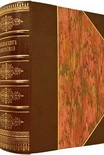The Twelve Lives of Alfred Hitchcock by Edward White (an ebook reader txt) 📗

- Author: Edward White
Book online «The Twelve Lives of Alfred Hitchcock by Edward White (an ebook reader txt) 📗». Author Edward White
In April 1920, Barrie premiered his new play at London’s Haymarket Theatre. Unlike Peter Pan, the eponymous heroine of Mary Rose is a girl who wants to grow old but can’t. As a child she went missing, only to rematerialize three weeks later unaware that more than a couple of hours had elapsed. Years passed without incident, though she remained curiously childlike on the inside. Entering adulthood, Mary Rose goes missing again, reappearing decades later—but without aging a day. When she learns from her family that her baby is now a man, and is himself missing in the Great War, the shock kills her. Her ghost, the sweet girl stuck in a time before everyone’s innocence had been destroyed, returns to haunt the family home, searching frantically for her son. Never had one of Barrie’s tales of supernatural mystery seemed so earthbound.
Among those who attended the play’s first run was Alfred Hitchcock, an advertising designer for an electrical cabling firm, with a dream of making it in the movies. Taking a trip to the West End for a night of spectacle and sensation at the theater was one of young Alfred’s great pleasures. Before the war, he went frequently with his parents, though now he tended to go alone, one of the many solitary, immersive experiences that stimulated his intense imaginative life.
In certain ways, Barrie foreshadowed the artist Hitchcock would become. Rambling back and forth across the territory of perennial obsessions, they both told campfire tales of the magical that were more complex and unsettling than they first appeared. Reviews of Mary Rose sound remarkably similar to the kind that attended Hitchcock’s career. “This eerie and beautiful play,” reads one piece filed in London, “holds you spellbound at the theatre, and sends you home with something of a shiver.” The writer took a swipe at the snooty curmudgeons who turned their noses up at Barrie’s work, as well as those who dredged his plays for hidden meanings, those “people who can see metaphors in scaffold-poles and symbols in coal scuttles,” precisely the same complaint that certain critics would one day level at obsessive watchers of Hitchcock’s films. Another reviewer complimented Mary Rose as a “slice of a delightful cake”; one of Hitchcock’s repeated boasts was that while some filmmakers make slices of life, he made slices of cake.
Mary Rose left a lifelong impression on Hitchcock. It so influenced him when making Vertigo (1958) that he tracked down the music used in the original production to give to the film’s composer, Bernard Herrmann, as inspiration. A few years later, he developed a script for a film adaptation of the play, but it was too offbeat for his studio, and the movie never happened. His connection to Mary Rose was strong but intangible, something to do with the transporting strangeness of the theater, the bewitching ethereality of Fay Compton in the title role, and the devastation done when the cocoon of childhood is ripped open. Like so many others in the audience of 1920, the adolescent Hitchcock had experienced loss and grinding anxiety in recent years, intense emotional experiences that never shuffled out of frame. A little like Mary Rose herself, part of Hitchcock remained a child forever. In his own words, “the man is not different from the boy.”
Hitchcock struggled with endings. Psycho, with its deus ex machina lecture in developmental psychology, thrown into the filming schedule at the last minute as a way of explaining Norman Bates’s murders, is the textbook example. Sometimes the problem was caused by the delicate sensibilities of the censors, or the intransigence of meddling producers. Other times, Hitchcock felt constrained by his audience’s requirement for narrative neatness. Rarely did he exhibit such difficulty with beginnings, especially when the story being told was how Alfred Hitchcock became “Alfred Hitchcock.”
The basic facts of his early life are plain enough. He was born on August 13, 1899, above his father’s greengrocer’s shop at 517 High Road in Leytonstone, Essex, east of London. By the time of Alfred’s arrival, Emma and William Hitchcock already had two other children: William (after his father) was nine, and Ellen (or Nellie) seven. Hitchcock’s father was the type of person evoked by the common nineteenth-century description of England as “a nation of shopkeepers”: a man for whom being one’s own master was a source of pride, and the ability to convert one penny into two a moral virtue—though it seems he left a good deal of those pennies behind the bar of his favorite pubs. His younger brother, John, was a better example of the breed, with a successful chain of food shops that paid for a five-bedroom home, attended by a small domestic staff, in the well-to-do London district of Putney. Although an extrovert personality with a keen sense of fun, Emma was a redoubtable matriarch. In her home, cleanliness and neatness were insisted on as the outward manifestations of inner goodness. “A wonderful character . . . very forceful,” is how Hitchcock’s daughter, Patricia, remembered her grandmother. “You can imagine a young person could be scared of her. . . . She made them toe the line.”
Despite the emphasis on hard work and self-discipline, the Hitchcocks were not puritans. In addition to the theater outings, classical recitals, fairs, and circuses were common family activities. There were also plenty of day trips along the Thames and into the Essex countryside, as well as seaside holidays in Cliftonville in Kent where his uncle John rented a large house in the summer.
Hitchcock’s father with his son William, Alfred’s older brother, outside the family shop, c. 1900.
Aged





Comments (0)